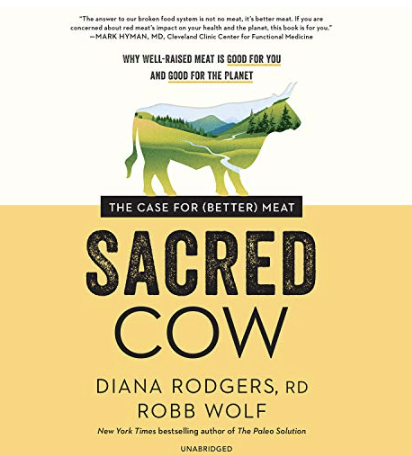Looking for some Sunday Recovery reading with your ice-cold FITAID? Try...
Book Review of Sacred Cow
Or just read this review below to impress your friends.
"Sacred Cow" by Diana Rodgers RD is a thought-provoking book that challenges popular misconceptions about meat and its impact on the environment. The book argues that meat can be produced in a way that is not only sustainable but also supports a healthy and diverse ecosystem. The book begins by exploring the history of meat production and how modern agricultural practices have led to environmental degradation and health problems. Rodgers then delves into the science of meat production and argues that grazing animals can play a critical role in restoring soil health and sequestering carbon. Rodgers also addresses the ethical considerations of meat production and consumption, arguing that it is possible to produce and consume meat in a way that is humane and supports animal welfare. In addition to making a compelling case for the benefits of sustainable meat production, "Sacred Cow" provides practical advice for incorporating meat into a healthy and sustainable diet, with recipes and meal plans to help readers get started. Similar books to "Sacred Cow"If you enjoyed "Sacred Cow" and are interested in similar books, you may want to check out:
-
- "The Omnivore's Dilemma" by Michael Pollan - This book explores the complex issues surrounding food production and consumption, with a focus on the ethical, environmental, and health considerations of eating.
- "The Big Fat Surprise" by Nina Teicholz - This book challenges the conventional wisdom around fat and cholesterol, arguing that a diet high in saturated fat can be healthy and beneficial.
- "Nourishing Traditions" by Sally Fallon - This book provides a comprehensive guide to traditional food preparation methods and the benefits of consuming nutrient-dense, whole foods.
- "The Carnivore Code" by Paul Saladino - This book makes a case for a carnivorous diet as a means of optimizing health and longevity, with a focus on sourcing and preparing high-quality animal products.
